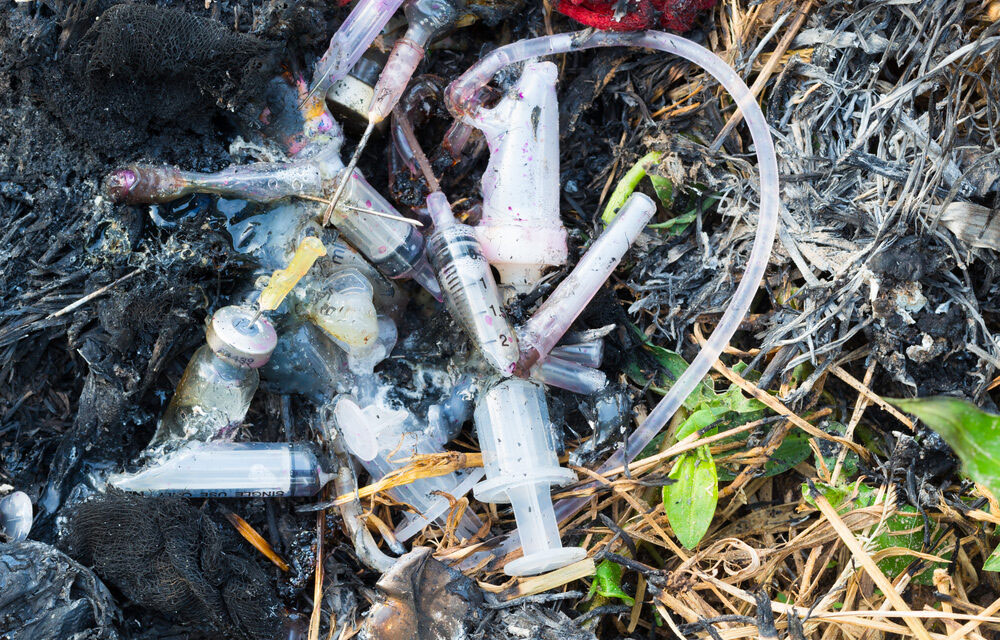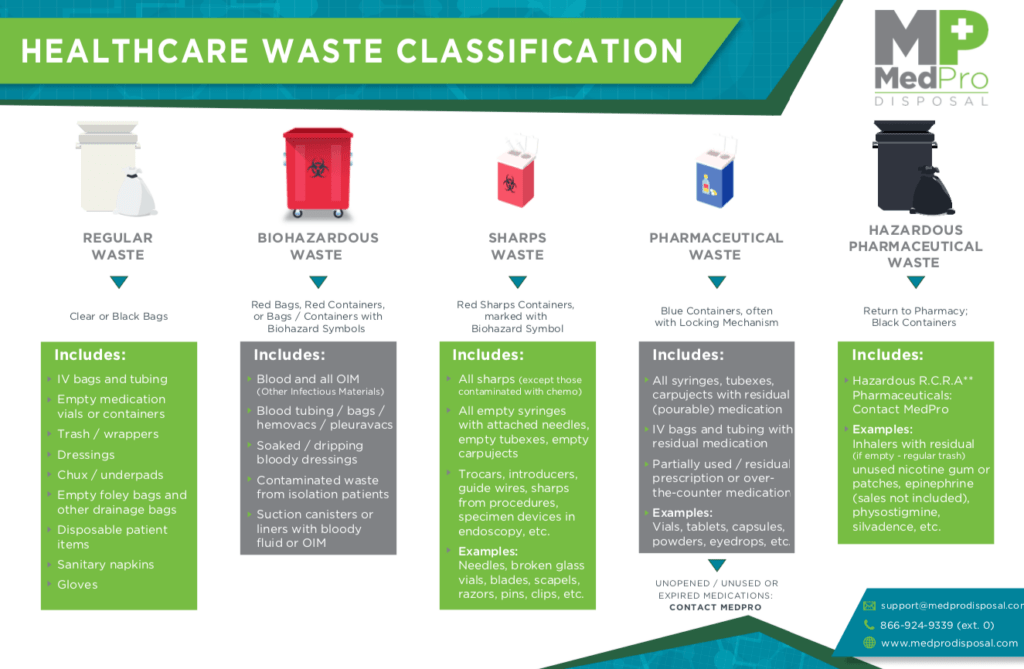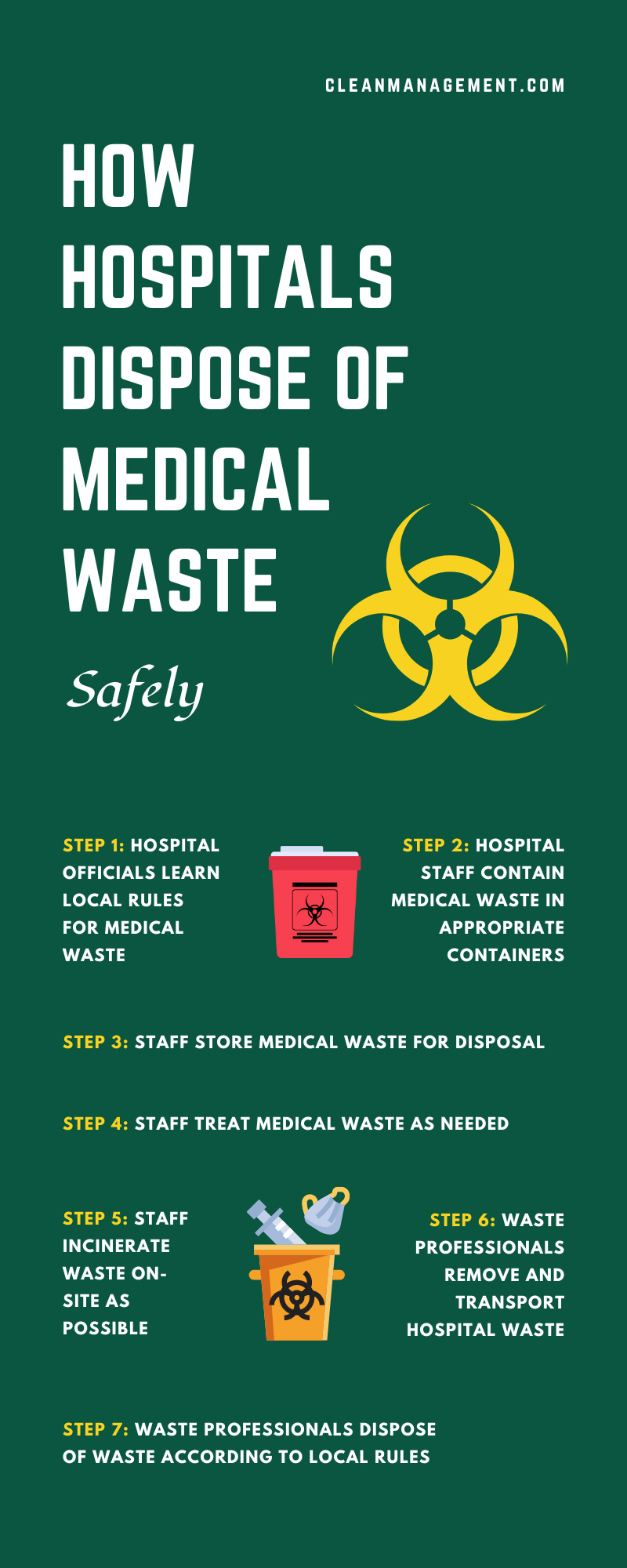Cost-efficient Medical Waste Disposal Services for Clinics and Hospitals
Cost-efficient Medical Waste Disposal Services for Clinics and Hospitals
Blog Article
Navigating Medical Garbage Disposal: Vital Solutions for Medical Care Facilities
Medical care centers, whether tiny clinics or large healthcare facilities, are left with the duty of handling, treating, and disposing of a broad array of clinical waste streams. Understanding the necessary solutions that support clinical waste disposal is not simply an issue of conformity however also an essential part in protecting public health and environmental well-being.
Regulatory Conformity Support
For healthcare facilities, guaranteeing regulative conformity assistance is important to preserve proper handling and disposal of medical waste. Sticking to policies stated by companies such as the Epa (EPA) and the Occupational Security and Health And Wellness Administration (OSHA) is vital to stop ecological contamination, shield public health, and stay clear of prospective lawful repercussions. Regulatory compliance support provides health care centers with guidance on how to appropriately segregate, store, transport, and dispose of various kinds of medical waste according to local, state, and government policies. This assistance consists of help in creating and implementing detailed waste management strategies, conducting regular staff training sessions, and doing audits to make sure recurring conformity. By partnering with regulatory compliance professionals, healthcare centers can stay updated on progressing guidelines, mitigate threats related to improper waste disposal, and eventually contribute to a safer and a lot more lasting setting for all.
Waste Segregation Advice

Healthcare centers should offer clear guidelines and training to personnel on exactly how to set apart waste successfully. This includes separating basic waste from harmful products such as sharps, contagious waste, pharmaceuticals, and chemical waste.
Collection and Transportation Services

Appropriate collection and transportation services are vital elements of the medical garbage disposal procedure in health care centers. These services ensure that harmful products are taken care of securely and in conformity with laws to protect both the environment and public health and wellness. Healthcare centers count on specialized waste monitoring business to offer efficient collection and transportation solutions tailored to their requirements.
Clinical waste collection entails segregating various sorts of waste at the point of generation, making use of color-coded containers or bags to compare basic, dangerous, pharmaceutical, and other waste streams. Trained workers need to do this job to protect against contamination and make certain appropriate disposal. Once gathered, the waste is transported in specialized lorries furnished to manage hazardous materials safely. These lorries abide by strict safety criteria and adhere to marked paths to accredited therapy facilities for disposal through approaches such as incineration, landfilling, or sanitation.
Treatment and Disposal Solutions
In the world of clinical garbage disposal for healthcare facilities, after the important phase of collection and transport services, the focus changes towards implementing effective therapy and disposal options. Therapy services usually include procedures such as autoclaving, which uses steam under pressure to sanitize the waste. This technique is commonly utilized for contagious waste that has to be provided non-hazardous prior to disposal. One more common treatment approach is incineration, where waste goes through heats in regulated settings to reduce its volume and eliminate pathogens.
Disposal remedies include the final action in the medical waste monitoring procedure. Reusing and source recuperation are also getting traction as lasting disposal choices for particular kinds of medical waste materials.
Effective treatment and disposal solutions are paramount in making certain conformity with laws and safeguarding public health and the atmosphere. Health care facilities have to very carefully review and choose appropriate techniques that line up with their waste management objectives and sustainability initiatives.
Personnel Training and Education

To successfully take care of medical garbage disposal in healthcare facilities, thorough staff training and education play a vital role in guaranteeing adherence weblink to governing requirements and maintaining a safe atmosphere. Correct training furnishes staff with the understanding and abilities needed to deal with various kinds of clinical waste, segregate them correctly, and package them safely for disposal. By educating employees on the risks connected with inappropriate handling of clinical waste, facilities can reduce the possibility of crashes, contamination, and governing infractions.

Conclusion
In verdict, health care facilities depend on essential medical garbage disposal solutions to make certain regulative conformity, correct waste segregation, safe collection and transport, reliable therapy and disposal, as well as team training and education. These solutions play a critical function in keeping the health and security of both healthcare workers and the general public, highlighting the value of appropriate monitoring of medical waste in healthcare setups.
For site web health care centers, guaranteeing regulative conformity support is crucial to maintain proper handling and disposal of medical waste. Waste partition includes categorizing different types of clinical waste to make certain proper handling, treatment, and disposal. This includes dividing basic waste from harmful products such as sharps, transmittable waste, drugs, and chemical waste.Clinical waste collection involves segregating various types of waste at the factor of generation, making use their explanation of color-coded containers or bags to differentiate between general, hazardous, pharmaceutical, and other waste streams.In the world of clinical waste disposal for health care facilities, after the essential phase of collection and transportation services, the focus moves in the direction of executing reliable therapy and disposal options.
Report this page